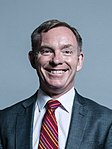
Sir Christopher John Bryant is a British politician and former Anglican priest who has served as Member of Parliament (MP) for Rhondda and Ogmore, and previously Rhondda, since 2001. A member of the Labour Party, he has been the Minister of State for Data Protection and Telecoms and Minister of State for Creative Industries, Arts and Tourism since 2024.

The Speaker of the House of Commons is the presiding officer of the House of Commons, the lower house and primary chamber of the Parliament of the United Kingdom. The current speaker, Lindsay Hoyle, was elected Speaker on 4 November 2019, following the retirement of John Bercow. Hoyle began his first full parliamentary term in the role on 17 December 2019, having been unanimously re-elected after the 2019 general election.

The speaker of the House of Commons is the presiding officer of the lower house of the Parliament of Canada. A member of Parliament (MP), they are elected at the beginning of each new parliament by fellow MPs. The speaker's role in presiding over Canada's House of Commons is similar to that of speakers elsewhere in other countries that use the Westminster system.

John Simon Bercow is a British former politician who served as Speaker of the House of Commons from 2009 to 2019, and Member of Parliament (MP) for Buckingham between 1997 and 2019. A member of the Conservative Party prior to becoming Speaker, he was the first MP since Selwyn Lloyd in 1971 to be elected Speaker without having been a Deputy Speaker. After resigning as Speaker in 2019 and opting not to seek re-election as MP for Buckingham in the 2019 general election, Bercow left Parliament. In 2021, he joined the Labour Party but was suspended in 2022.

Rosalie Winterton, Baroness Winterton of Doncaster,, is a British Labour Party politician who served as Member of Parliament (MP) for Doncaster Central from 1997 to 2024. She served as a Deputy Speaker in the House of Commons from 2017 to 2024. She became a member of the House of Lords in 2024.
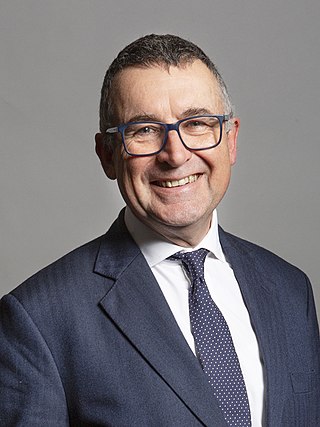
Sir Bernard Christison Jenkin is a British Conservative Party politician who has been the Member of Parliament (MP) for Harwich and North Essex, previously Colchester North, since 1992. He also serves as chair of the Liaison Committee.

Eleanor Fulton Laing, Baroness Laing of Elderslie,, is a British Conservative Party politician who served as Member of Parliament (MP) for Epping Forest from 1997 to 2024. She served in the shadow cabinets of Michael Howard and David Cameron. From 2013 to 2024, Laing was a Deputy Speaker of the House of Commons and was the first female Chairman of Ways and Means from 2020 to 2024. She had one of the longest tenures in the speaker's chair. She became a member of the House of Lords in 2024.

Sir Lindsay Harvey Hoyle is a British politician who has served as Speaker of the House of Commons since 2019 and as Member of Parliament (MP) for Chorley since 1997. Before his election as speaker, he was a member of the Labour Party.

Chorley is a constituency in Lancashire represented in the House of Commons of the UK Parliament since 1997 by Lindsay Hoyle. Hoyle was originally elected for the Labour Party, but in 2019 became the Speaker, making him unaffiliated.
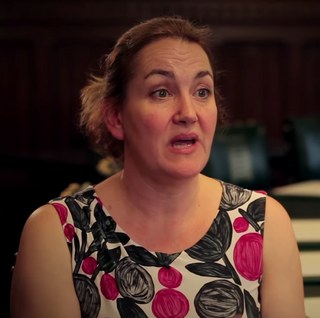
Natascha Engel is a British former politician. She served as Labour Party Member of Parliament (MP) for North East Derbyshire from 2005 until her defeat at the 2017 general election.
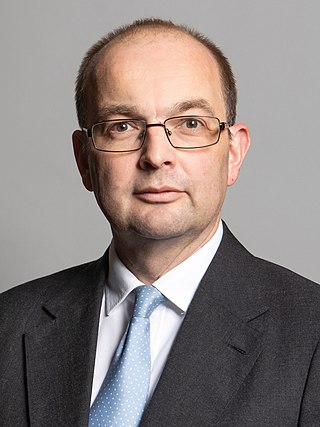
Sir James Philip Duddridge, is a British politician and former banker. A member of the Conservative Party, he served as the Member of Parliament (MP) for Rochford and Southend East from 2005 to 2024. Duddridge previously held several ministerial positions under prime ministers David Cameron, Boris Johnson and Liz Truss.
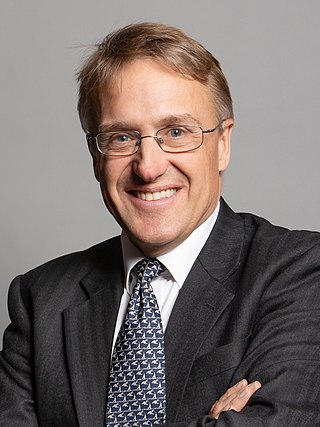
Sir Charles Ashley Rupert Walker is a British politician who served as chair of the House of Commons Procedure Committee from 2012 to 2019. A member of the Conservative Party, he was the Member of Parliament (MP) for Broxbourne in Hertfordshire from 2005 to 2024.
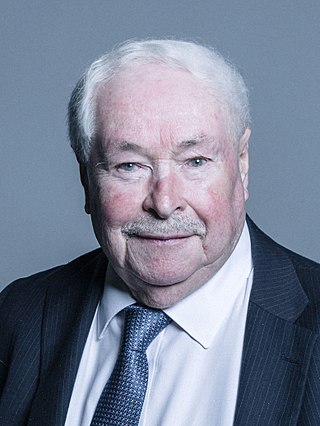
Eric Douglas Harvey Hoyle, Baron Hoyle,, was a British politician and life peer who was chair of the Parliamentary Labour Party from 1992 to 1997 and a lord-in-waiting from 1997 to 1999. A member of the Labour Party, he was Member of Parliament (MP) for Nelson and Colne from 1974 to 1979 and Warrington North from 1981 to 1997.

The 2009 election of the Speaker of the House of Commons occurred on 22 June 2009 following the resignation of Michael Martin as Speaker during the parliamentary expenses scandal. Martin was the first Speaker since Sir John Trevor in 1695 to be forced out of office. It was the first Speaker election since 11 May 2005, and the first contested election of a Speaker since 23 October 2000.
The Panel of Chairs are members of the House of Commons of the United Kingdom responsible for chairing public bill committees and other General Committees, as well as debates in Westminster Hall, the parallel debating chamber. The three Deputy Speakers, who are automatically members, are responsible for chairing Committees of the Whole House. Other members may act as temporary chairs of Committees of the Whole House. The Panel is not itself generally thought of as a committee, but it does have the power to meet to consider matters relating to procedure in the general committees and report its findings to the House of Commons.
On 15 January 2019, a motion of no confidence in the government of Theresa May was tabled in the House of Commons. On 16 January, the House rejected the motion by a vote of 325 to 306.
In July 2022, a motion of confidence in the second Johnson ministry was tabled in the House of Commons. The motion, debated on 18 July, was laid by the government itself after it had refused to allow time for a Labour Party no-confidence motion. The Government won the vote on 18 July, but the Prime Minister resigned in September.


